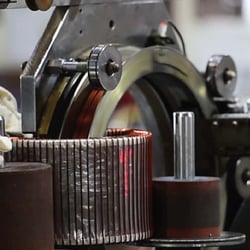We see it constantly: “corporate” insists on one brand of MES, while the manufacturing plant wants something different. The execs running the show regionally or globally don’t trust plant management’s choice, while the plant believes corporate’s pick won’t work for them ― because “their situation and production environment is different.” This kind of battle isn’t limited to one or just a few industrial sectors ― indeed, automotive manufacturers, life sciences companies, food and beverage manufacturers, and consumer products manufacturers (also known as CPG companies) around the world have all seen and are at risk when the “MES tug of war” ensues.
Everyone generally agrees ― getting the right MES in place is hard work, and it requires so much more than making a list of software vendors and seeing demos. A mediocre decision can prolong implementation, training, and adoption, while a poor decision costs much more than the tens or hundreds of thousands of dollars in the cost of ownership. Either way, anything but a good decision can delay and hinder performance gains.
Not all Stakeholders Engaged in Manufacturing Execution System Battle
(or Decision)

Usually, it's only plant management and corporate-level operations executives that engage in the MES battle. However, while the conflict is generally limited to these stakeholder groups, the outcome has far-reaching implications ― yes, throughout the enterprise, but also across the upstream and downstream value chain.
The engineers and consultants I work with have reported encountering COOs, vice presidents of operations, corporate operations stakeholders, and plant operations leaders engaged in the battle. It’s surprising since these are the very people with a vested interest in achieving consensus as early as possible.
Even when the two key stakeholder groups wrestle for MES decision-making rights, the decision-making process often neglects other key groups and individuals like shop floor supervisors, machine operators, assembly workers, quality, maintenance, supply chain, safety, and compliance professionals, and on occasion even corporate IT or operations technology gurus. (Although tech people are rarely excluded entirely.)
MES Decision-Making is a Team Sport
Ideally, the effort to create a solutions roadmap will involve a cross-section of workers, disciplines, and job levels throughout the plant and into corporate. It’s because plant workers need technology and architecture that doesn’t stand in their way, and helps them achieve goals (quality, cost, risk, production targets). Meanwhile, corporate needs the right data and insights feeding the system of record so it can support the plant and make good enterprise decisions.
To get there, all sides must throw off their armor and engage in a collaborative effort. When corporate stakeholders and plant management join forces to assess needs, define requirements, and establish a plan, battling sides become allies to create and implement a powerful and more effective solutions roadmap. Furthermore, as a united team, they lay the groundwork for widespread collaboration, which is the keystone for a healthy culture to support the roadmap.
Every level and department with a stake must give input toward the solution to capture critical process flow elements and usability requirements. Companies that exclude roles that use or rely on systems almost always experience adoption and culture difficulties ― and ultimately never recoup ROI, let alone achieve the full potential for value.
When is a Fresh Perspective Required, not Just Helpful?
Some companies simply cannot get past documenting process flows and capturing usability requirements. Meanwhile, other manufacturers do a wonderful job in this area or even fly right through to solution selection, yet get stuck with implementation or worse, get everything in place then never see any (or enough) value. These are situations when an independent, unbiased third party can bring clarity to the situation.
A gentle word of warning, however. While software vendors are rich sources of knowledge and expertise, they are not unbiased. Even with best intentions and every effort to offer advice without bias, every software company’s goal is the same: get you to buy its product.
A truly unbiased coach or agency wants your company to start where it is, evaluate the situation factually, and make the right choices ― even if it means not buying more or different software. As an example, we worked with one food and beverage / CPG client that had purchased and implemented a very expensive MES from a well-known software vendor. Once installed, the manufacturer was never able to recoup its initial investment, and it struggled to determine how to proceed. By reassessing the situation and making some adjustments to how it was using the system it already purchased, the company surpassed original ROI and achieved performance gains exponentially greater than original value expectations.
When the War is Over: Next Steps for MES Success

Think about your own company for a moment. Are “corporate” and the plant faced off in opposite corners? If so, battling stakeholders have probably inadvertently created an environment or relationship of conflict rather than collaboration, and they’re distracting everyone from growing the business.
Organizations with a collaborative approach to building and implementing a solutions roadmap make better technology decisions. With the right manufacturing execution system in place, each stakeholder (plant and enterprise) gets the right information, the right way, at the right time.
Also, the right solution removes barriers to success and opens up new opportunities to reduce inefficiencies. When a company has the right system and uses it in the right way (with good processes and the right culture supporting it), an MES can create a 5-20% uplift in EBITDA (earnings before interest, tax, depreciation, and amortization) by helping the organization improve common manufacturing metrics like:
- Unplanned downtime
- Changeovers and planned downtime
- Cycle time and throughput
- Scrap, rejects, and yield
- OEE and capacity utilization
- Quality, the cost of good quality (CoGQ), and the cost of poor quality (CoPQ)
- On-time delivery
- Inventory and WIP
- Health, safety, and compliance
- Reliability and cost of maintenance
- Rate of NPI
- Total manufacturing cost per unit
- Energy cost per unit
- Therefore, for each day or week a manufacturer delays, it misses out on cost, quality, performance, or supply chain gains. These could very well translate to tens or hundreds of thousands of dollars per day or week.
Getting the right MES in place isn’t as simple as “software selection.” A company must examine culture, processes, and the technology stack, then formulate a plan to achieve objectives. Every effort to select and implement MES should include these steps:
- Understand your company’s overall business objectives and how plant systems impact its ability to achieve results.
- Examine the technology stack – from top to bottom – to ensure technology decisions enhance rather than clash with systems already in place.
- Engage the plant to understand processes, culture, and needs.
- Conduct an asset and data acquisition audit to determine readiness and needs.
- Formulate a technology roadmap and launch a plan to achieve goals.
Read how one world-class manufacturing company skipped the MES tug-of-war and aligned culture, processes, and technology.









